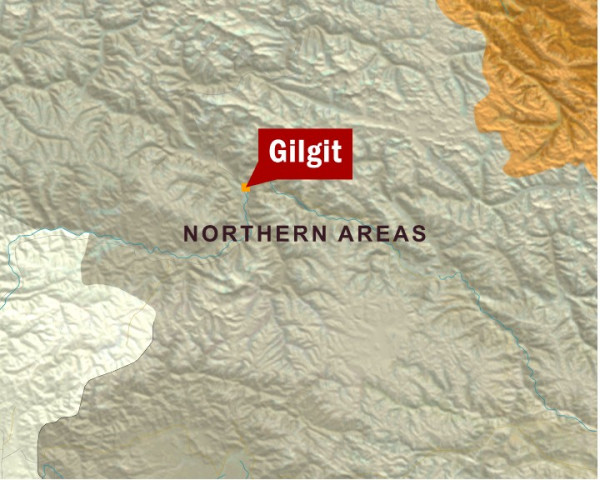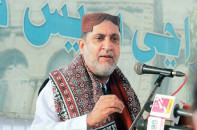New governor: Sect trumps competence in Gilgit-Baltistan
Religious sect a major consideration in the decision to select new governor.

The debate opened after Pakistan’s and Gilgit-Baltistan’s first woman governor, Dr Shama Khalid, died in September this year after a tough battle against cancer. Since then, the legislative assembly’s speaker Wazir Baig has been the acting governor.
Members also said that a woman governor was against the traditions and norms of the region and such considerations must be respected when making the decision for a new governor.
“In order to maintain a balance between the two sects (Sunni and Shia) in Gilgit-Baltistan, it has been recommended that the governor should be a representative of the Ahle Sunnat community,” said a committee member, on condition of anonymity. The member had attended the meeting held in Islamabad on Friday, which was chaired by Gilgit-Baltistan Chief Minister Mehdi Shah, who is a Shia Muslim.
However, the source said, if a suitable person from the Sunni sect was not available, Baig would be asked to take up the position. “Acting governor Wazir Baig belongs to the Ismaili sect and is a veteran PPP politician from Gilgit-Baltistan.”
He said that a two-member committee, comprising Gilgit-Baltistan council member Advocate Amjad and the legislative assembly’s Deputy Speaker Jamil Ahmed, has been assigned to collect the signatures of all parliamentarians before submitting it to President Zardari for approval.
He said that the elected representatives will have no objection if a woman representing the Sunni sect is nominated as the governor. “However, these are [only] our recommendations but we will accept whatever is decided in the President House,” he said.
Ahmed’s appointment as the deputy speaker had also been made on sectarian grounds, even though he lost his seat to an independent candidate in the 2009 elections, he returned to the assembly on a reserved seat.
The parliamentary committee also discussed the situation emerging from the withdrawal of the Jamiat Ulema-e-Islam-Fazl (JUI-F) in the centre. It was decided in the meeting that no member of the PPP would make a statement against the JUI-F in Gilgit-Baltistan without the prior approval of the party head.
However, when contacted, Ahmed denied that any such thing was discussed in the meeting. “The only agenda was the alliance of the PPP with the JUI-F in Gilgit-Baltistan,” he said.
Published in The Express Tribune, December 26th, 2010.



















COMMENTS
Comments are moderated and generally will be posted if they are on-topic and not abusive.
For more information, please see our Comments FAQ